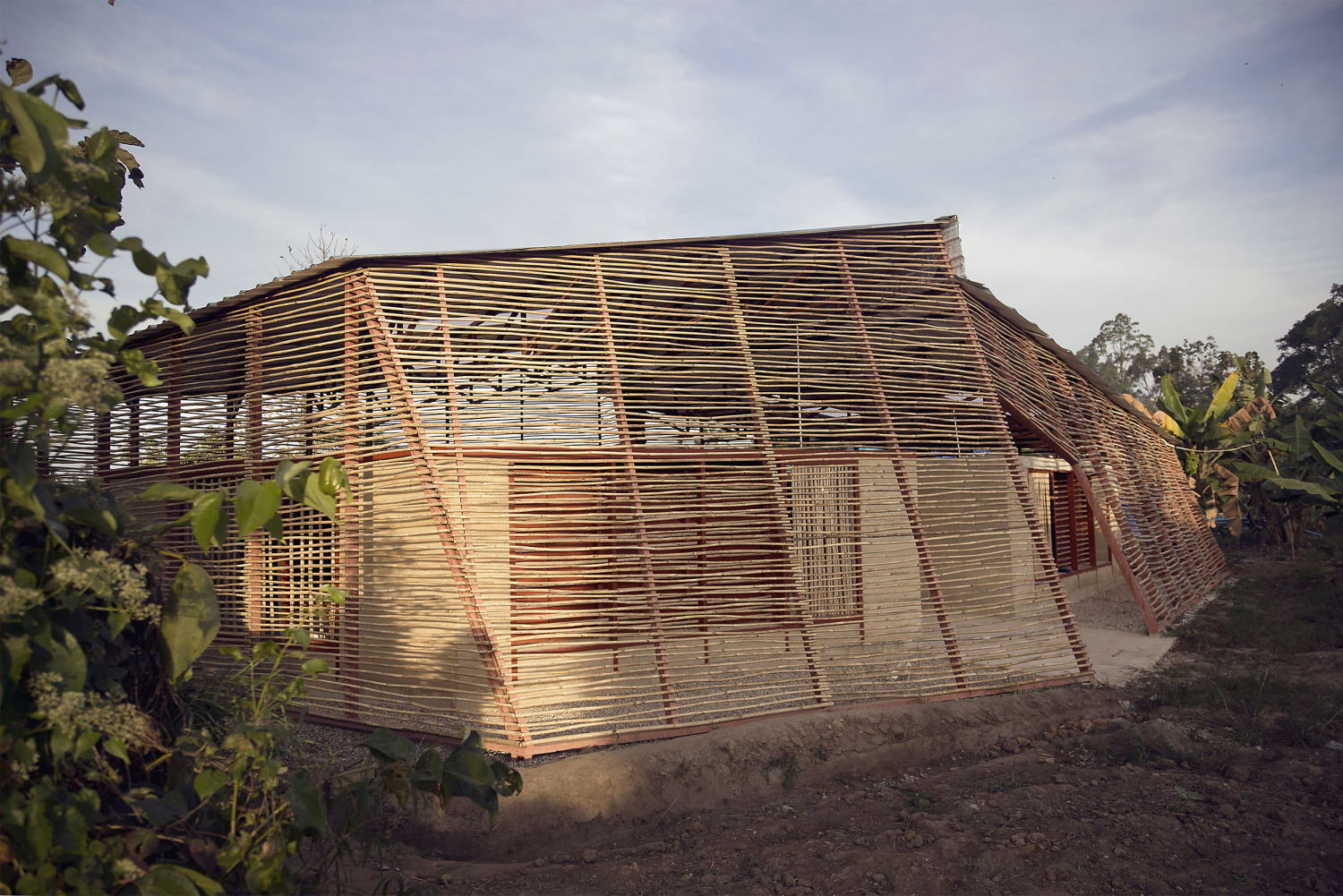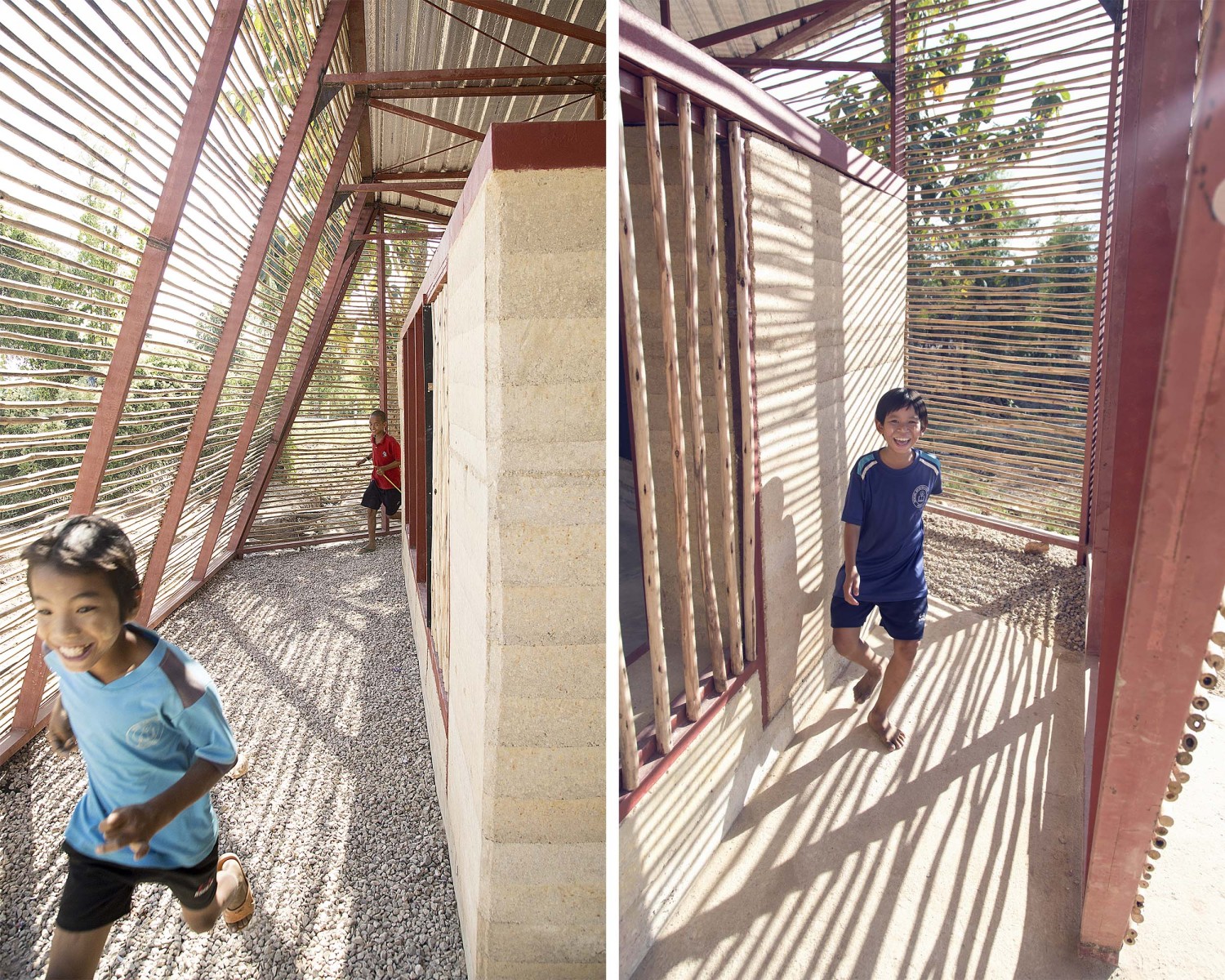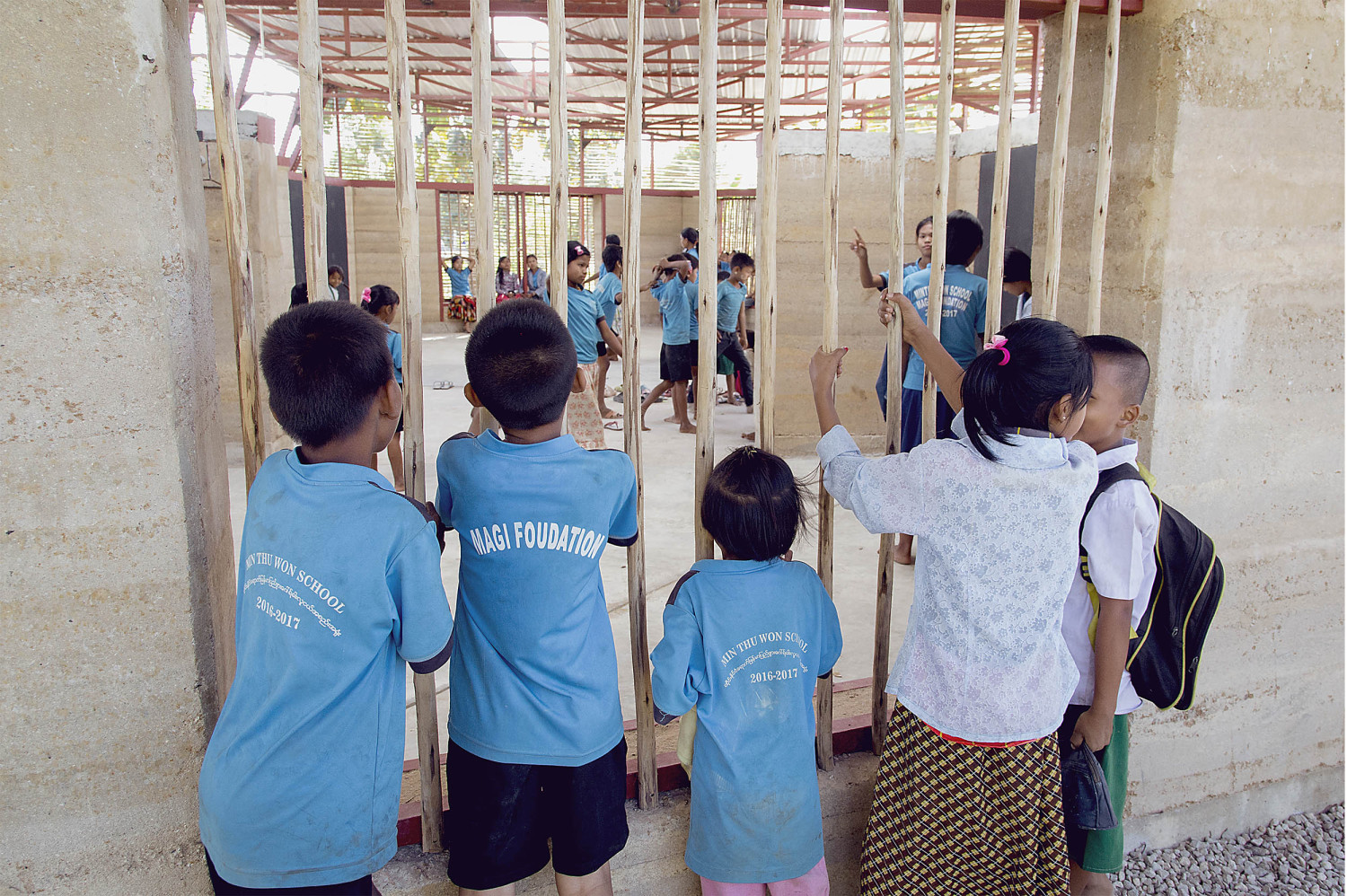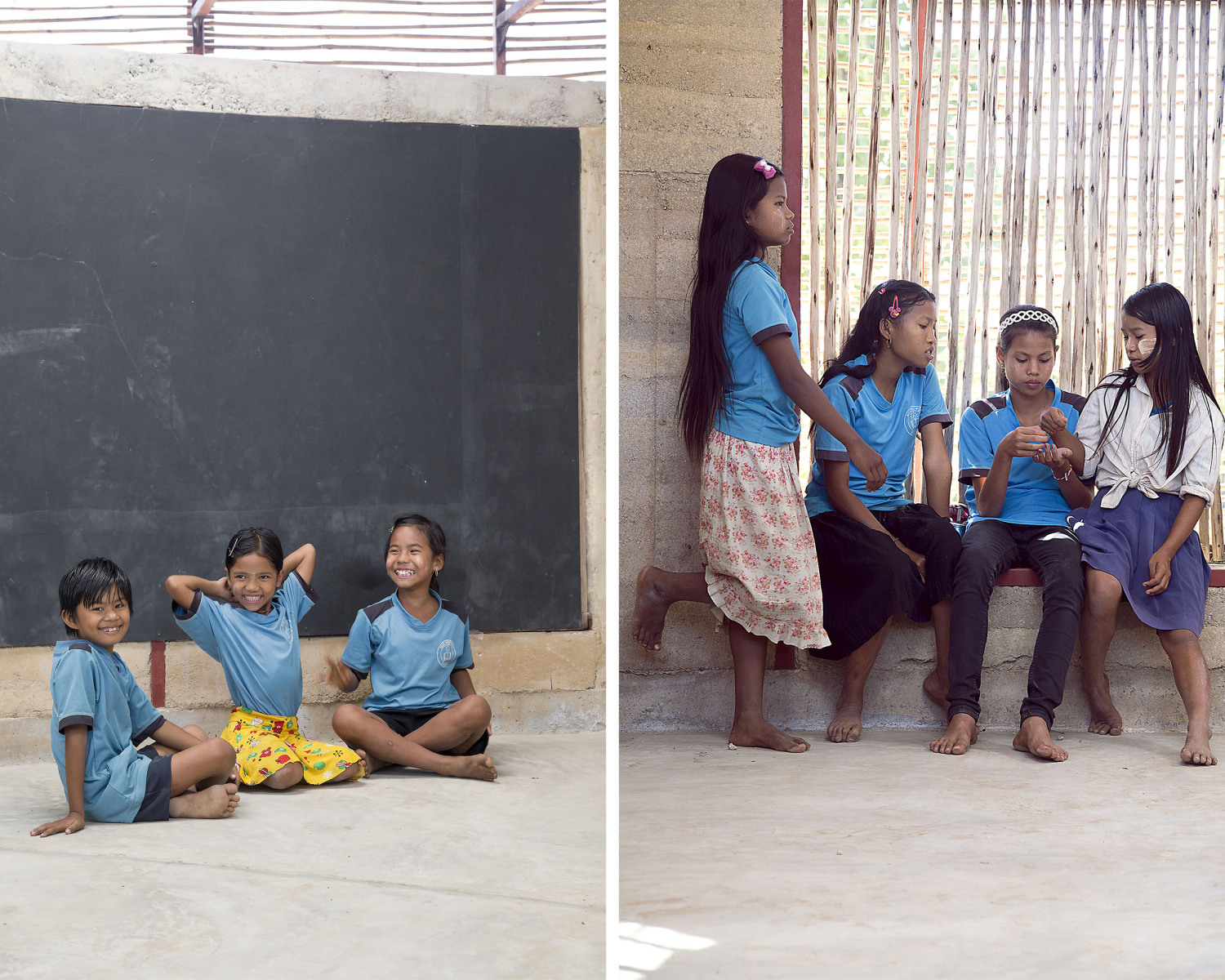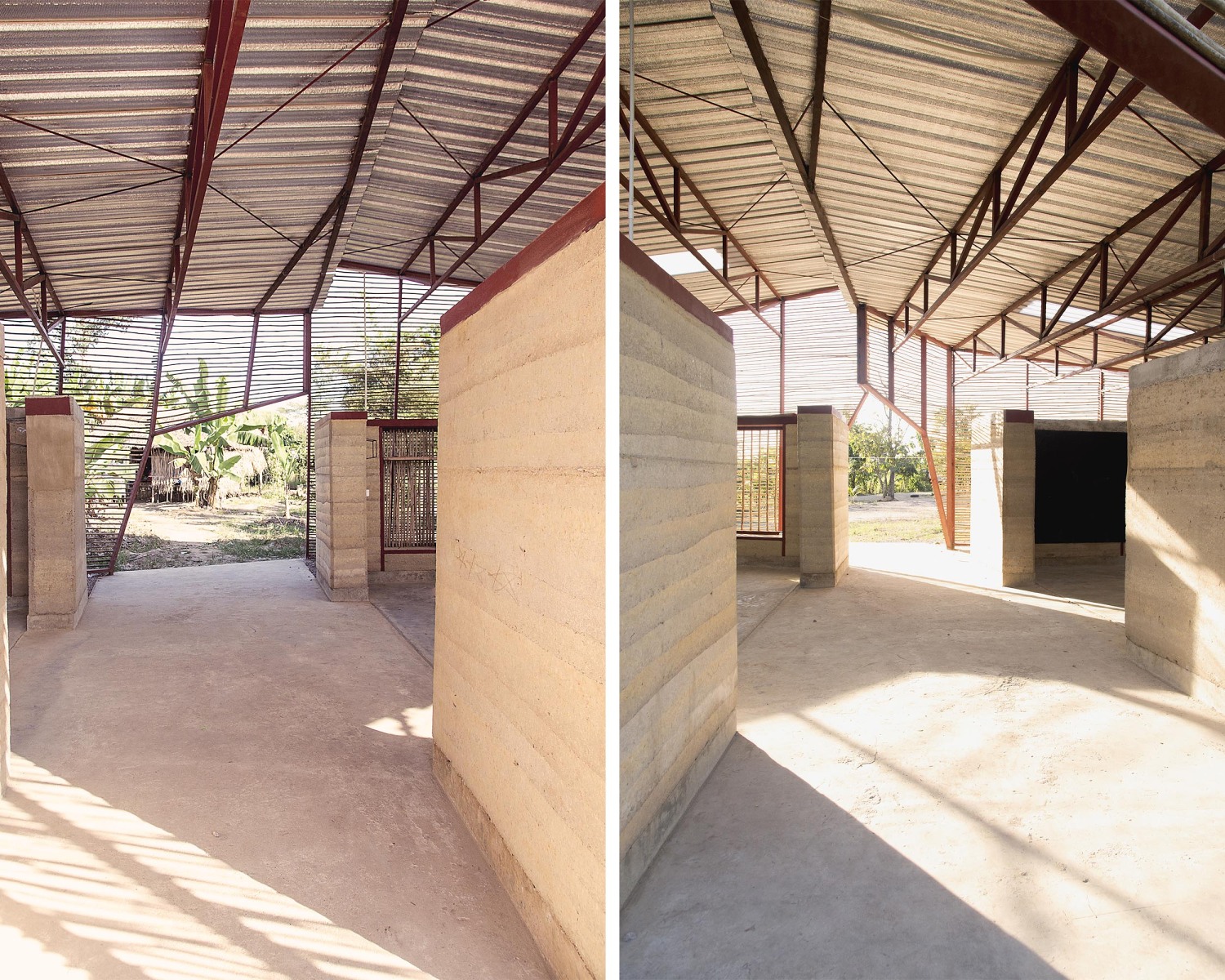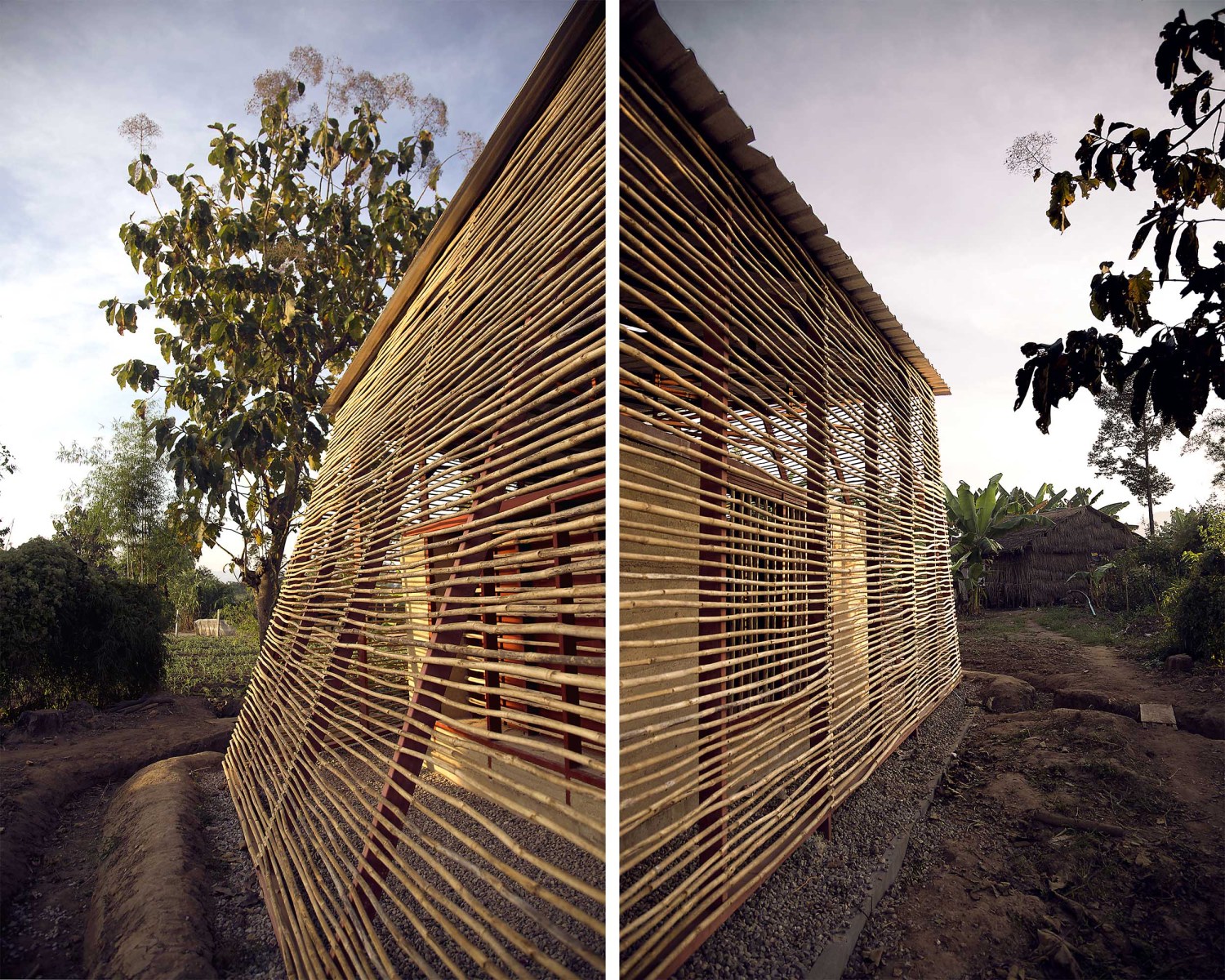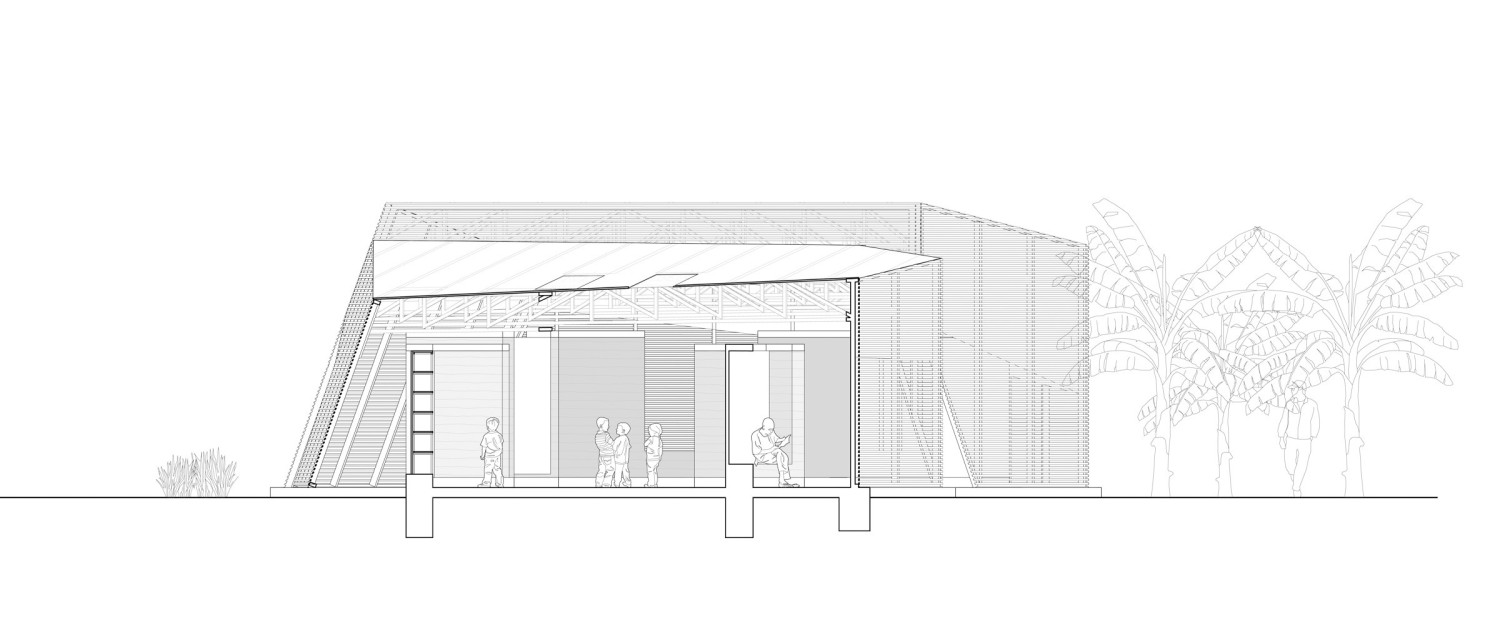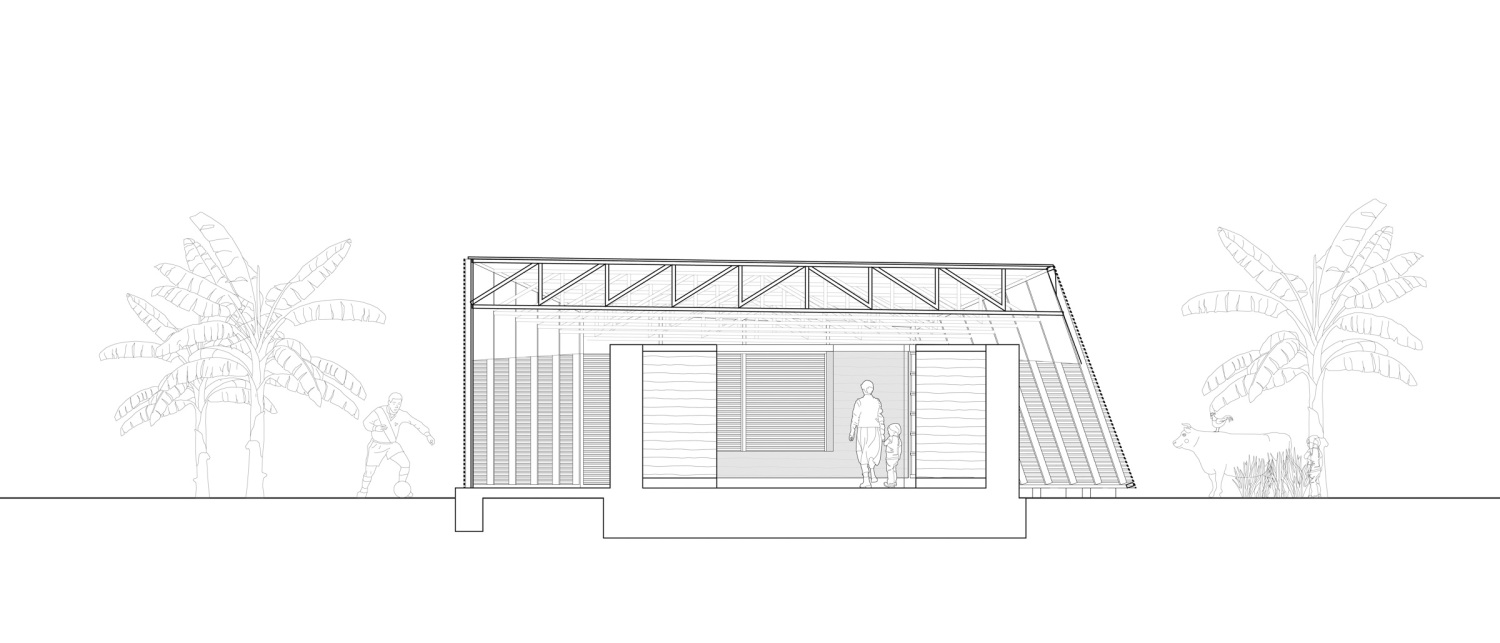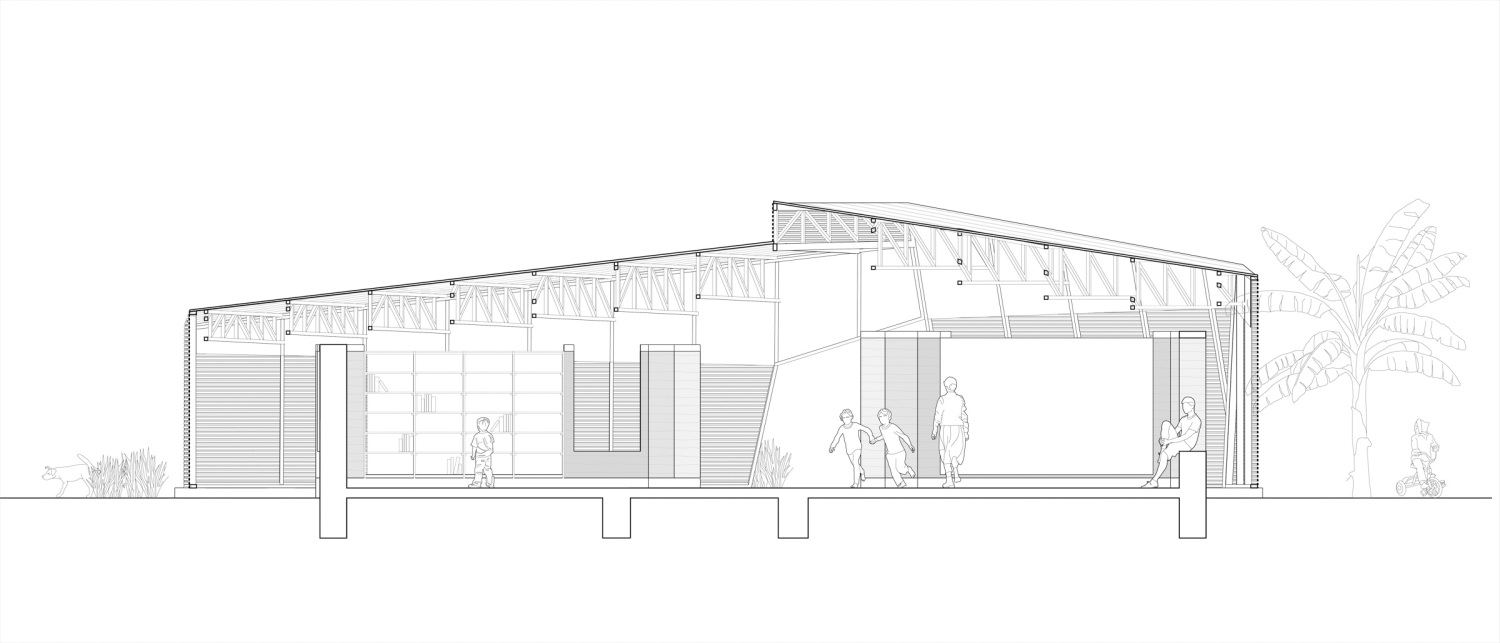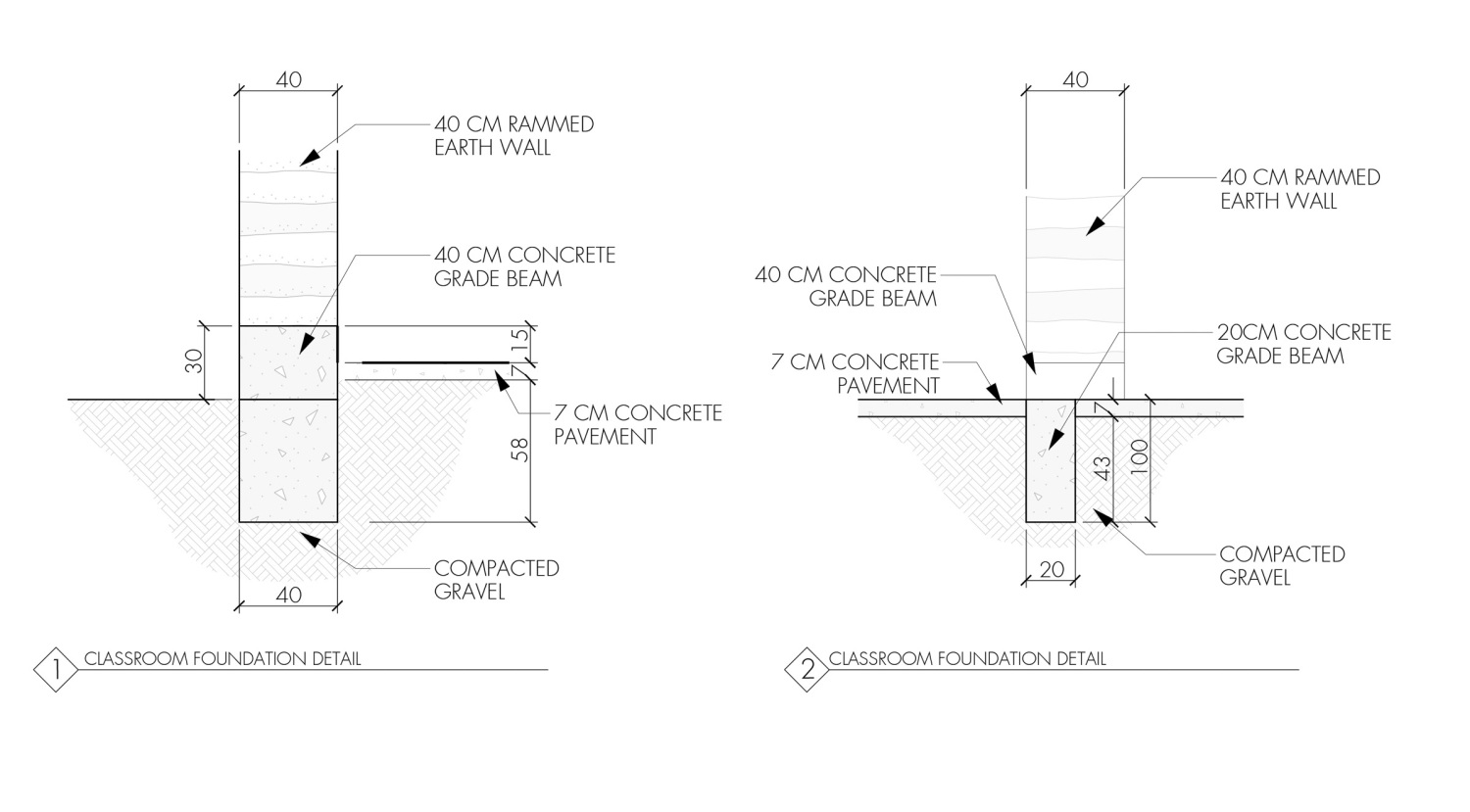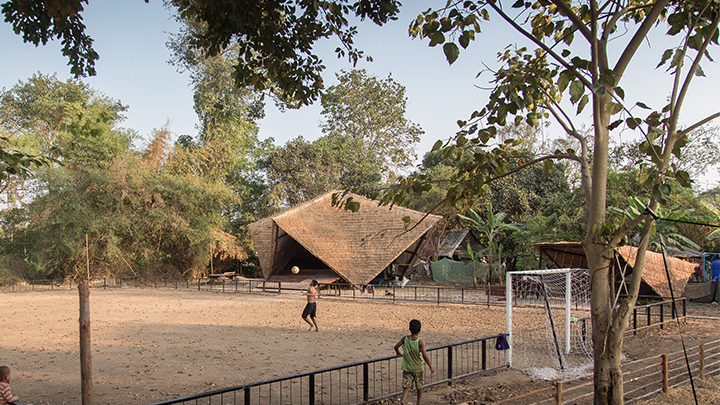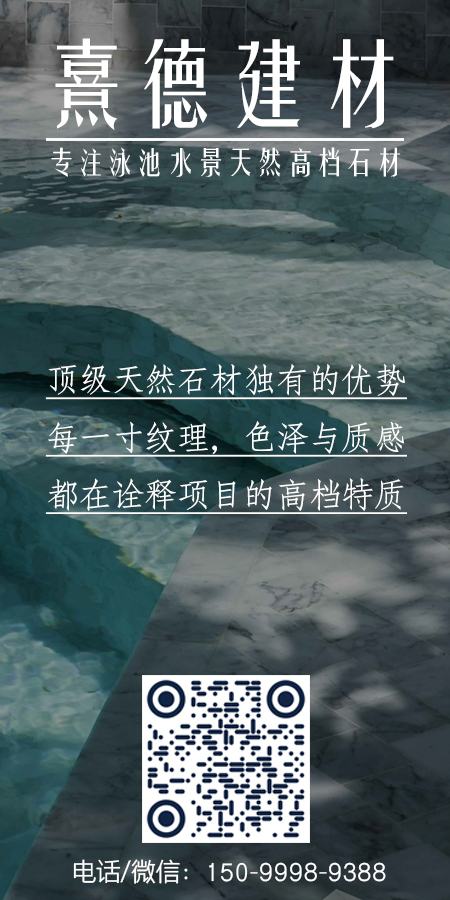| 公司: | Estudio Cavernas | 类型: | 建筑 |
|---|---|---|---|
| 地区: | 泰国 | 标签: | 校园 | 文化空间 |
坐落于泰国和缅甸边境, Mae Ku学习中心是新落成的教育功能性建筑。该建筑被设计成一个山状的单体,“依偎”在周围平野中。新的学习中心是Min Tu Won学校的多功能教育空间,这个民间组织旨在为当地的缅甸难民和移民群体提供教育。
The Mae Ku Learning Center is a new educational building located near the Thai-Burma border. The building is designed as a mountainous, monolithic object nestled in amidst the adjacent fields. The center is a multi-functional educational space for the Min Tu Won School, a community-led organization that provides education for a local community of Burmese refugees and migrants.
面对资源短缺的困境,Min Tu Won学校已有的教室已经不能容纳所有的学生。为了提升学习环境,同时继续培养和宣传本地教育,学校旨在给70个学生寻求更多的空间。
Faced with minimal resources, the Min Tu Won School’s existing classrooms needed relief for their overcrowded teaching areas. They sought additional room for 70 students to improve the learning conditions of the school as well as to continue to cultivate and promote local education.
新的中心利用可变化的,多功能的一系列空间体量解决了这些需求。由内部两个大体量形成的开放空间,为授课,学习和互动教学提供场地。这些空间将随着学校的扩张和发展不断进化。
The new center responds to these needs with a massing of adaptable, multi-functional spaces. Two large interior volumes form an open floor area for teaching, studying and interactive learning. As the school grows and develops, these spaces will be able to accommodate the Min Tu Won School’s evolving conditions.
建筑的厚重而充满趣味的形状吸引了孩子们来互动和探索。天然、本地的材料贯穿建筑内外,使之融入周围环境。长途跋涉而来的学生们在远处就可以看见学习中心,使之成为一个令人向往的目的地。
The building is designed with playful, massive shapes assembled together for children to engage and explore. Natural, locally sourced materials are used throughout the building to integrate the object within its surroundings. The center is visible from afar, an enticing destination for the long distance that many students travel to come to school.
教室宽敞的空间内配有黑板,嵌入墙式的长凳和储藏空间。开放式空间也给多变的教学方式提供了可能。天窗的设计让室内充满柔和的自然光。经精心处理的竹质外墙如同面纱一样包围着内部空间,形成一系列通道和空间,让孩子们探索。阳光透射入空间,增加了建筑的深度和体量感。同时,竹质外墙也起到环境调控作用:遮挡住直射阳光和雨水,但让新鲜空气和微风透过夯土墙进入内部。
The large classroom volumes feature blackboards, built-in wall benches and storage space. An open floor plan allows for flexibility in the arrangement of the learning areas. The interior is illuminated with soft, natural light using skylights.A delicate, veiled bamboo skin wraps the interior spaces, creating a world of passageways and spaces for students to discover. Sunlight is filtered through, adding depth and volume to the building. The bamboo skin acts as an environmental mediator, screening the interior rammed earth walls from direct sunlight and rain while welcoming fresh air and breeze to pass through.
这座建筑体现了Estudio Cavernas工作室的设计哲学之一:创造出所有工匠都可以建造的低技术系统,保证在地可获得的材料和技术都可以适用到这个系统中。这个项目的受益者从始至终地参与到设计和建造过程中,从中获得自豪和归属感,也促进了学习中心的持续成功和维护。
As part of the philosophy of EstudioCavernas, the design of the building uses low-tech constructive systems that can be built by all workers, ensuring that most of the systems are adapted to the available materials and skills. The beneficiaries of the project are involved throughout the design and construction process, allowing them to take pride and ownership in the building and to encourage the continued success and maintenance of the learning center.
Mae Ku学习中心是通过曼谷朱拉隆功大学(Chulanlongkorn University) “国际设计和建筑”学科(INDA)的“社区设计与建造”课程开发的。由Preechave Sitipunt博士开启,这个课程将大学资源和泰国各地的社区连接,创造出有意义的项目。这个课程组织了曼谷的20个大学生一起研究体块,材料和功能。通过场地调查和合作式的设计过程,学生们优化和记录了项目,也参与了现场建造过程。课程导师包括 WIWA 工作室的 Wisarut Eric Wattanachote, Orbe 建筑事务所的 Jason Orbe-Smith 。项目通过和 Estudio Cavernas 工作室( Juan Cuevas, Yago Cuevas )的设计建造合作实现。
The Mae Ku Learning Center was developed through the Design and Build for Community course at the International Design and Architecture (INDA) program at Chulalongkorn University in Bangkok. Started by Dr. PreechayaSitipunt, this course connects communities from throughout Thailand to the university resources to create a meaningful project. The design build course gathered twenty students in Bangkok to study mass, material and program. Through site visits and a collaborative design process, students worked to refine and document the project and then participated in the building construction on site.The course was taught by Wisarut Eric Wattanachote of WIWA-Studio and Jason Orbe-Smith of Orbe Architecture. The project was realized through a design and construction collaboration with Juan and Yago Cuevas of EstudioCavernas.
▼项目图纸
项目名称:MAE KU LEARNING CENTER
项目地点:泰国 达府湄谷
设计单位:Estudio Cavernas+INDA+Orbe Architecture+Wisarut Wattanachote+NapapatLasavanich+Gunn
项目面积:147m2
项目类型:学校
项目预算:14.000欧元
首席建筑师:Jason Orbe-Smith,Juan Cuevas,Yago Cuevas,Wisarut Wattanachote
文本:Jason Orbe-Smith
摄影版权:Juan Cuevas
Area: 147m2
Location: Mae Ku, Tak, Thailand
Architects and Designers: INDA (Group 2014-18)), Orbe Architecture (Jason Orbe-Smith), EstudioCavernas (Yago Cuevas,Juan Cuevas), WisarutWattanachote, NapapatLasavanich, Gunn
Lead Architects: Jason Orbe-Smith, Juan Cuevas, Yago Cuevas, Wisarut Wattanachote
Typology: Educational
Budget: 14.000Eur.
Construction: INDA, Orbe Architecture, Johny Org.
Text: Jason Orbe-Smith
Photography: Juan Cuevas
更新日期:2020-05-08 15:21:33
非常感谢 Estudio Cavernas 带来的精彩项目, 查阅更多Appreciations towards Estudio Cavernas for sharing wonderful work on hhlloo. Click to see more works!

